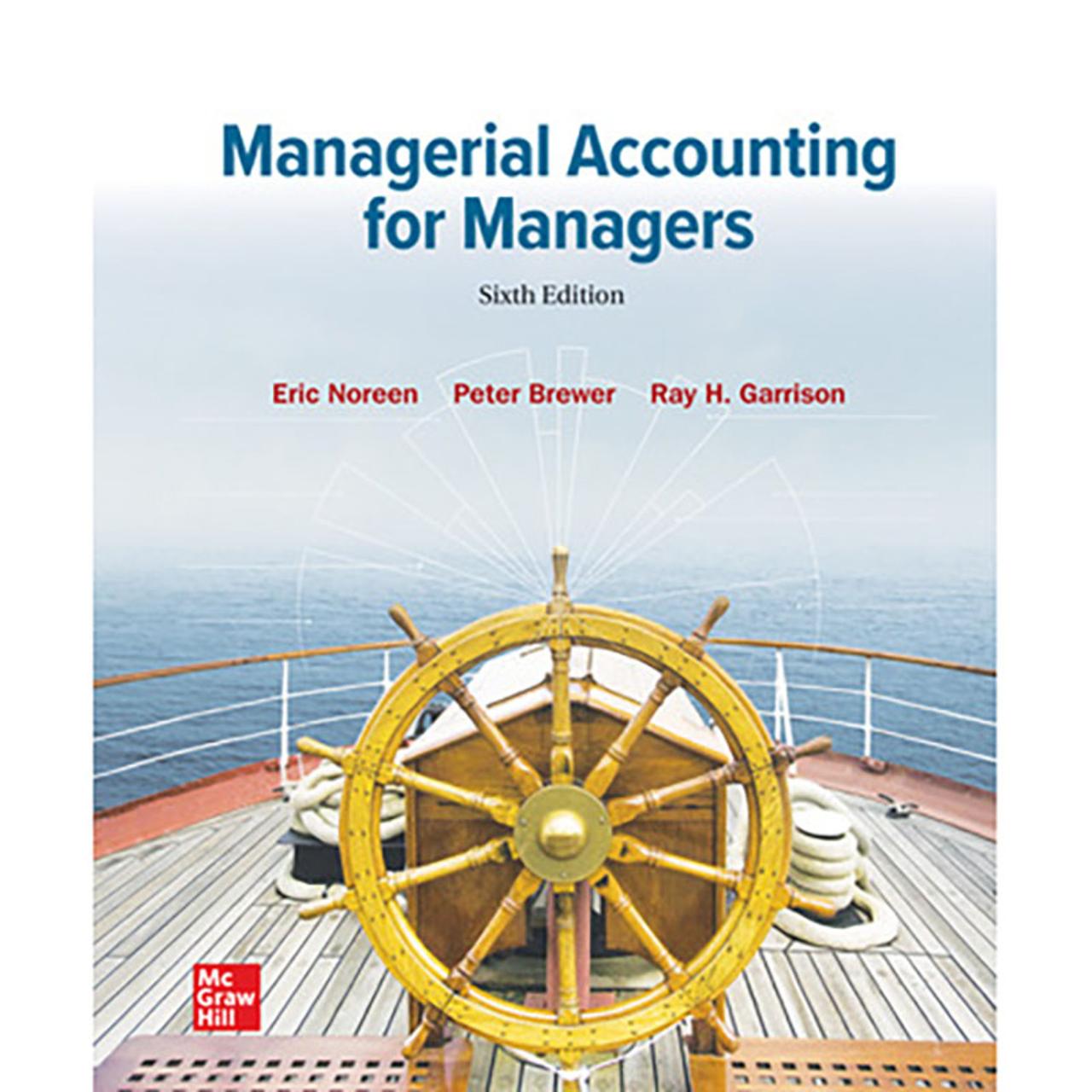Managerial accounting for managers 6th edition – Managerial Accounting for Managers, 6th Edition, unveils a captivating journey into the realm of decision-making. This comprehensive guide empowers managers with the tools and techniques necessary to navigate the complexities of business operations and drive organizational success.
Through an engaging narrative, this edition delves into the fundamental concepts of managerial accounting, exploring cost behavior, activity-based costing, budgeting, performance measurement, and capital budgeting. Each chapter unravels practical insights and real-world examples, equipping readers with the knowledge and skills to make informed decisions that drive profitability and growth.
Overview of Managerial Accounting

Managerial accounting is a branch of accounting that provides information to managers within an organization to help them make informed decisions. It focuses on the internal operations of a company and is not intended for external users such as investors or creditors.
Managerial accounting reports provide managers with information about the costs, revenues, and profitability of their organization. This information can be used to make decisions about pricing, production, marketing, and other aspects of the business.
Role of Managerial Accounting in Decision-Making
- Provides information about the costs and benefits of different courses of action.
- Helps managers to identify and evaluate risks.
- Supports managers in making informed decisions that will maximize the profitability of their organization.
Types of Managerial Accounting Reports
- Income statements
- Balance sheets
- Cash flow statements
- Budgets
- Performance reports
Cost Concepts and Behavior
Costs are the expenses incurred by a company in the production of goods or services. Costs can be classified into two main types: variable costs and fixed costs.
Variable costs are those that change with the level of production. For example, the cost of raw materials is a variable cost because it will increase as the level of production increases.
Fixed costs are those that do not change with the level of production. For example, the cost of rent is a fixed cost because it will not change regardless of the level of production.
Cost Behavior and Decision-Making
Understanding cost behavior is important for managers because it can help them to make informed decisions about pricing, production, and other aspects of the business.
For example, if a manager knows that the cost of raw materials is a variable cost, they can adjust the price of their product to reflect the changes in the cost of raw materials.
Examples of How to Use Cost Data to Make Decisions, Managerial accounting for managers 6th edition
- To determine the most profitable product to produce.
- To decide whether to make or buy a component.
- To set prices for products and services.
Q&A: Managerial Accounting For Managers 6th Edition
What are the key objectives of managerial accounting?
Managerial accounting aims to provide managers with the financial and operational information they need to make informed decisions, control costs, and improve profitability.
How does managerial accounting differ from financial accounting?
Managerial accounting focuses on internal decision-making and is not subject to the same external reporting requirements as financial accounting.
What are the benefits of implementing an activity-based costing system?
ABC systems provide more accurate cost information, enabling managers to better understand the drivers of costs and make more informed decisions about product pricing, resource allocation, and process improvement.